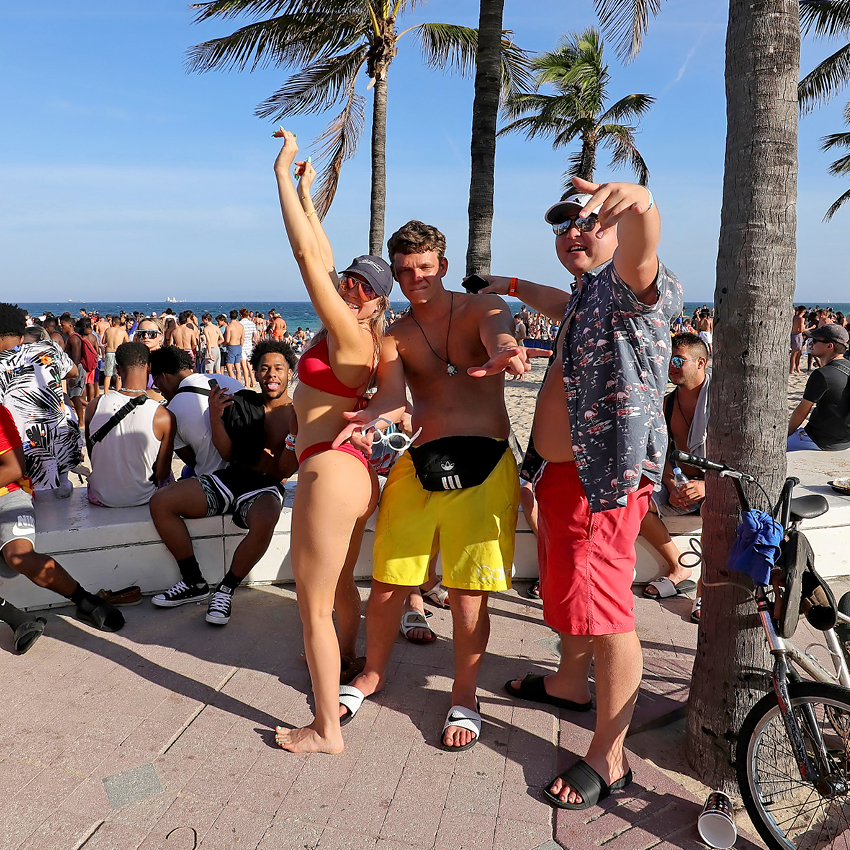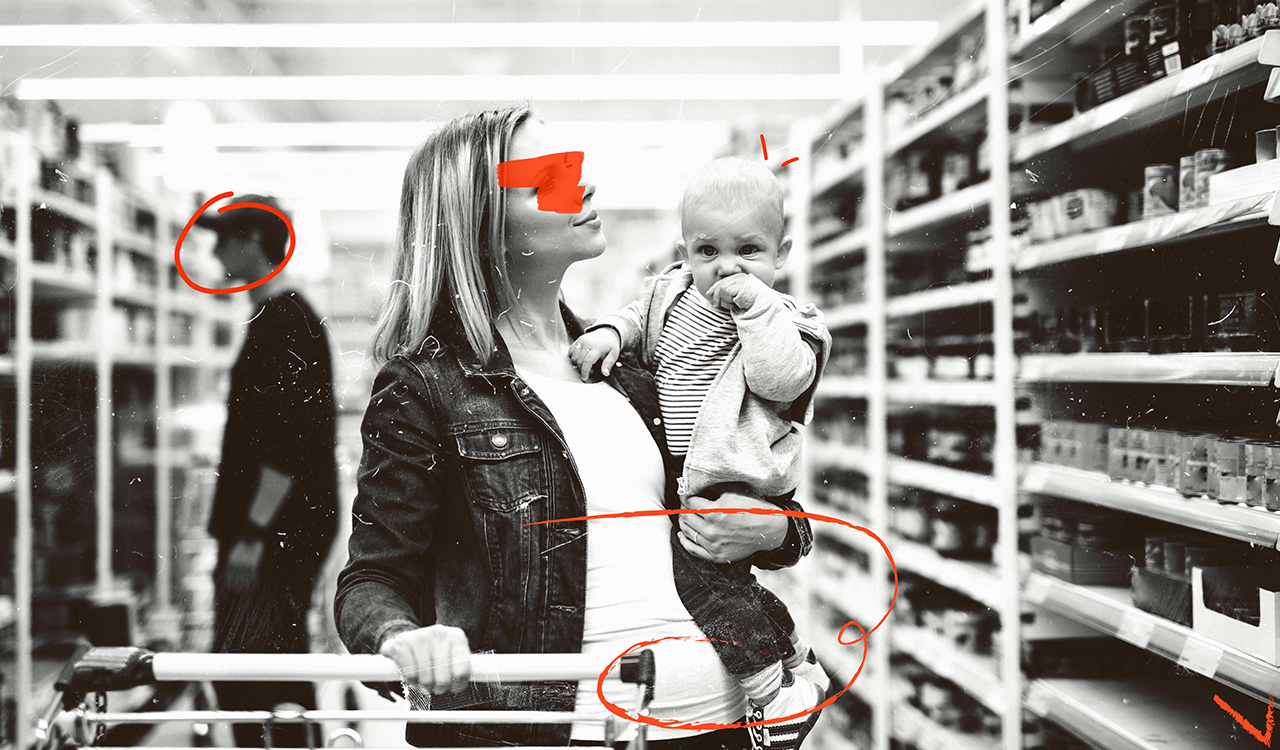The hot topic on everyone’s minds is: why won’t Gen Z stay inside? The answer to this question is complicated, but it also has big implications for the retail industry. The world is in a tizzy about the behavior of Next-Gens during Covid. Gen Z is taking fewer precautions than any other generation to prevent virus spread. Only slightly over half (57 percent) are social distancing and there was an onslaught of photos of Gen Z and millennials partying it up over spring break on the beach.
While, at first glance, it may appear that Gen Z is unconcerned with Covid-19, these Next-Gens also rank the highest in anxiety that they will contract the virus. Quite the discrepancy, isn’t it? But there are reasons for their actions. Let’s dive into why young people are, by all appearances, flagrantly ignoring government precautions––and how this translates into their purchasing behavior.
The Defiance is Political
Gen Z has always been skeptical of “the man,” but their disdain for authority has reached new heights. It’s impossible to talk about how Gen Z is handling the pandemic without highlighting their sentiment surrounding the current political climate. You have to understand — Gen Z is diverse in ethnicity, race, gender, and sexual orientation. Fewer Next-Gens than any other demographic voted for Donald Trump. And in a Pew Research Study conducted before the coronavirus outbreak, only a quarter of Gen Z voters ages 18 to 23 (22 percent) approved of how he was handling his job as president.
[callout]Gen Z feels that they’re being forced to put their young lives on hold in service of the demographics (Boomers and the Silent Generation) that created our country’s mishandling of the outbreak with their political choices.[/callout]
Gen Z is less susceptible to coronavirus than older demographics who had the opportunity to have milestones like their proms, high school graduations, college orientations, and/or first jobs. And Next-Gens don’t see the outbreak as a result of their actions. The feeling is that they’re being forced to put their young lives on hold in service of the demographics (Boomers and the Silent Generation) that created our country’s mishandling of the outbreak with their political choices. So, they’re choosing defiance over despair and continuing with life as usual to the best of their ability. I’m not saying it’s right (or wrong), but it’s what’s happening.
A Generation on the Verge
This crisis is also taking a big toll on Gen Z’s mental health, their wallets, and their purchasing behavior. Next Gens were isolated before the pandemic hit and those that are sequestered face serious mental health side effects as a result of being unable to interface with their peers in person. The impact has been catastrophic. Almost half of Gen Z consumers around the world globally say that they’re stressed all or most of the time, and their “job/career prospects” rank as the number one stressor. But they aren’t all turning to support groups and therapy to hash out their mental issues. Instead, brands and retailers are scrambling to come up with innovative ways to support the mental health of their Gen Z customers.
Contrary to popular belief, it’s not just fears about contracting the virus and the realities of putting their professional lives on hold that’s negatively impacting young consumers. They’re also losing their jobs. Pew Research Center reports that young workers were particularly vulnerable to job loss before and during the coronavirus outbreak, since so many worked in high-risk service sector industries. Layoffs happened quickly and indiscriminately in March, April, and May. Now, 1 in 4 Gen Z consumers are worried about running out of money.
The toll on Gen Z’s mental health and the harsh reality of their finances will lead to divergent shopping behavior within the demographic. Some will spend as if they’ll die tomorrow, where others will save money in preparation for the next big pandemic hit. In a recent Prosper Insights and Analytics panel, 45 percent of Gen Z say they agree with the spending philosophy of “Live for today because tomorrow is uncertain”–– this motto defines their purchasing behavior as much as characterizes their unwillingness to sequester themselves.
The World Will Never Be the Same
This virus has impacted Gen Z’s personal, financial, and professional prospects. Nearly half of Gen Z consumers believe that Covid-19 will impact future purchasing behaviors. Next-Gens are in the midst of a mental health crisis the likes of which most people alive today have never seen. Brands and retailers that try to ignore these harsh realities and simply pander their wares as usual are in for a rude awakening: Things will not “return to normal.” Those who are waiting for things to return to normal will be waiting indefinitely.
It’s time to create an actionable retail strategy for the world we are living in today. Gen Z wants to return to life as usual in as many arenas as possible. Consider that 37 percent of Gen Z consumers want to do their clothes shopping in physical stores again. This means retailers who want to market to Next-Gens need to rally their troops, train their staff on how to politely enforce sanitization protocols, and then––yes, I’m saying it––open their stores.
Are there moral issues at play when it comes to enforcing face mask laws and sanitization protocols? Absolutely. But Gen Z consumers are trying to stay sane in a world gone mad. They didn’t get to go to prom. They didn’t get a graduation. And many are hankering to see their friends again at Forever 21 and Jamba Juice.
Look around…the return to physical life is the reality of the times we’re living in. Unless or until we get a second wave of coronavirus cases that lead to shutdowns, Gen Z is determined to wrench what life they can out of Summer 2020. Instead of begrudging them for it, retailers would be wise to focus on creating a safe space for them to do so.




